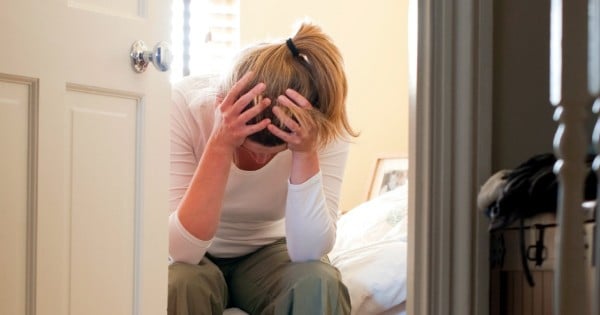
Warning: This post deals with mental illness and suicide, and may be triggering for some readers.
Do you know what is the biggest killer of Australian women after giving birth?
Perhaps you might suspect blood loss or infection. And those would be a fair guess. Even today, complications such obstetric haemorrhage, embolism and infection still happen and sadly sometimes have fatal results.
But none of those are the leading cause of maternal death in Australia.
After heart disease (which is the leading cause of all Australian deaths), the biggest cause of death in postpartum women is suicide.
You read that correctly. More new mothers die by their own hand, than by any pregnancy- or birth-related complication.



Top Comments
I had a horrendous birth with a complete uterine inversion. I then suffered crippling anxiety and PND. I was very medication resistant and was at my wits end. Had the last combination of three drugs not worked I had decided to have ECT. Where I was lucky was that I had excellent medical support, support from friends and family and, most importantly, a wonderful husband who was there saving me every step of the way. During treatment one thing my psychologist said to me that really rang true was that once upon a time having a baby was a 'community' event. Couples didn't live alone in a little house with their baby, they lived with extended family such as parents, grandparents, aunts, uncles, cousins etc.... If mum and dad were tired, even at 3am, there was someone there to help. Now I fear parents feel they have to do it all or risk being criticised by society. And heaven knows mothers are among the most criticised people on the planet. There's always someone ready to cut you down when all you are doing is trying your best. What's the answer? I don't have it. But I do know it should start with everyone being kinder to each other and themselves. To any mums (or dads - they can get PND too) out there who feel they may have PND you are not alone and there is help available so I suggest going to see your GP or obstetrician.
Wow, you really had an incredibly rough start to your baby's life. No small wonder that you ended up with PND. I hope you feel better these days. You are so right. We have really lost that sense of community, which can make early parenthood that bit easier. I wish you all the best for the future.